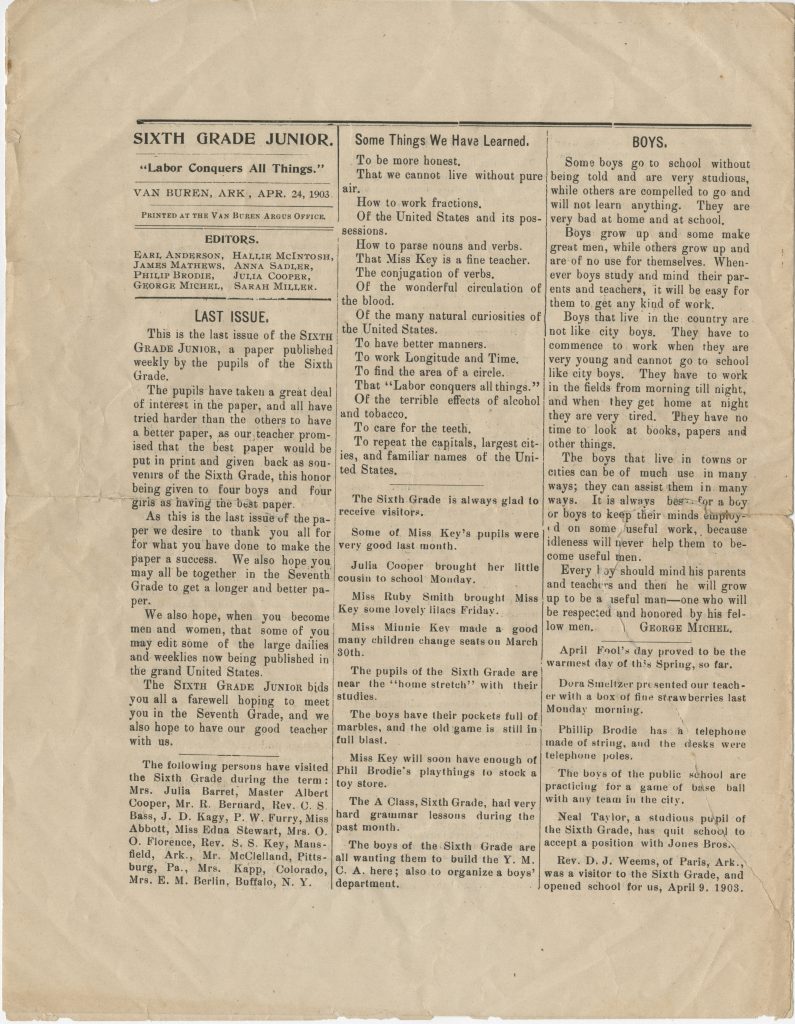“Some Things We Have Learned” Sixth Grade Junior “Labor Conquers All Things”, 1903

Article from a sixth grade newsletter from Van Buren, Arkansas, April 24, 1903
Transcript
“To be more honest.
That we cannot live without pure air.
How to work fractions.
Of the United States and its possessions.
How to parse nouns and verbs.
That Miss Key is a fine teacher.
The conjugation of verbs.
Of the wonderful circulation of the blood.
Of the many natural curiosities of the United States.
To have better manners.
To work Longitude and Time.
To find the area of a circle.
That “Labor conquers all things.”
Of the terrible effects of alcohol and tobacco.
To care for the teeth.
To repeat the capitals, largest cities, and familiar names of the United States.”
BOYS.
Some boys go to school without being told and are very studious, while others are compelled to go and will not learn anything. They are very bad at home and at school.
Boys grow up and some make great men, while others grow up and are of no use for themselves. Whenever boys study and mind their parents and teachers, it will be easy for them to get any kind of work.
Boys that live in the country are not like city boys. They have to commence to work when they are very young and cannot go to school like city boys. They have to work in the fields from morning till night, and when they get home at night they are very tired. They have no time to look at books, papers and other things.
The boys that live in towns or cities can be of much use in many ways; they can assist them in many ways. It is always better for a boy or boys to keep their minds employed on some useful work, because idleness will never help them to become useful men.
Every boy should mind his parents and teachers and then he will grow up to be a useful man–one who will be respected and honored by his fellow men.
GEORGE MICHEL.”
Questions:
What can you learn about the sixth grade in Van Buren, Arkansas, in 1903, from this primary source?
What kinds of things did students study? How are they similar to the things that students study today? How are they different?
George Michel wrote an article in the newsletter about boys. How does he say boys in the country are different from boys in the city? Do you think that children who live in the country today are very different from children who live in the city?
What advice does George Michel give to boys?
How do you think this article would be different if it was written by a girl about girls?
Citations
Sadler Family Papers (UALR.MS.0045), UA Little Rock Center for Arkansas History and Culture.